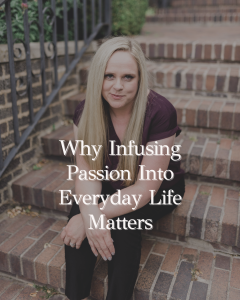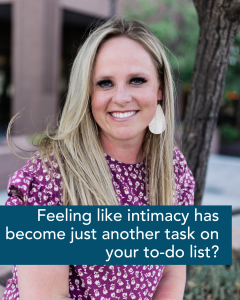
This week’s episode is all about orgasms. What are they? What do you they feel like? What keeps you from having one?
Show Summary:
Today we are going to talk about The Big “O” – Orgasms. Many, many women I speak with have either never had an orgasm or don’t have them very often. So today we are going to talk all about the orgasm and see if we can help some of you have one for the first time, or maybe those of you who are experienced at orgasm learn more to have great orgasms or a different kind of orgasm.
Some common questions about orgasms I get are
- What does an orgasm feel like?
- How do I know if I’m having one?
- Whose job is it to give the orgasm?
- Should I be having an orgasm every time?
- If I don’t orgasm, does that mean I’m not good at sex?
Orgasms don’t necessarily happen every time you are sexual. Sometimes you don’t get the stimulation you need. Maybe medication is interfering with it (which happens a lot with anti-depressants). Anxiety and pressure can also interfere with the ability to orgasm. The more anxious you are, the less likely you are to build arousal.
If you are in your head worrying about how you look (like we talked about last week on the podcast), worrying about your partner and how they see you or if they are having fun, if you are distracted or thinking about your to-do list, if you are worried about IF you are going to orgasm or how long it is taking, you are probably too distracted to be enjoying what is happening at the moment, and you might not orgasm.
To orgasm, you must be present and in the moment. Don’t let your mind wander to your to-do list or worry about things. Find thoughts that keep you there, focused on that moment with your husband, on your pleasure, on how things feel or what might feel good. Let your mind wander to fantasies and eroticism to keep you in that heightened sexual state. That is going to increase your chances for orgasm highly.
Here are four steps to increase your chance at an orgasm.
- Prioritize your pleasure
One of the biggest myths that we are taught (either through culture or media) is that when you are having sex, you should be focused on your partner rather than yourself. Of course, you want to spend time showing your spouse that you love them and you want to care for them in this way, but you must make sure you are getting what you want and need as well. It is also essential for you to to understand how YOU like to be pleasured. Where do you like to be touched? How do you like to be touched?
If you have no idea what you like or how you like it, I would encourage you to figure it out. You can do this alone or with your partner, whatever you are most comfortable with, but figure out what feels good to you. Here is a great tool I want to offer you called Roadmap To Personal Pleasure that can help you figure out what pleasure feels like to you. It’s a FREE download for my listeners!
- Have realistic expectations
Most of our exposure to what orgasms are is through media, which isn’t representative of real-life. The truth is, everyone’s orgasms look and feel different. Each person’s experience of orgasm is unique. During orgasm, heart rate increases, breath quickens, and muscles contract rhythmically. Each orgasm can vary in intensity and duration, depending on how and what part of your body is being aroused. Some describe it as going over an edge. Some say their bodies get tighter and tighter like a spring winding up, and then the physical pressure is released. Others describe orgasm as a pleasurable feeling for a period of time, and then it goes away. Only you know what it feels like for you. Besides providing a physical release, it’s also an emotional one – allowing you to feel closer to your partner or simply de-stress after a tough day.
There are also different types of orgasms.
Let’s start with the clitoris. The clitoris is the primary sex organ for women and the area that is the most important to focus on for orgasm. 70-80% of women need the clitoris to be stimulated in or order to have an orgasm.
You’ve also probably heard of the G-Spot. The g-spot is the sensitive area inside the front wall of the vagina half way between the vaginal opening and the cervix. The g-spot isn’t something you can see, but you can usually feel with your fingers. It feels slightly bumpy or spongy. The g-spot tends to respond best to massage with fingers or a toy. The penis can also stimulate it in certain positions. For a minority of women, g-spot stimulation alone can lead to orgasm (which is usually the women who can orgasm with intercourse alone, provided they aren’t in a position where the clitoris is also being stimulated). But for the majority, it’s more likely that combining the g-spot with stimulation on the clitoris will lead to orgasm. This is sometimes called a blended orgasm. There are links to my favorite vibrators on the Resources page.
There are two “types” of orgasms as well. A “peak” orgasm feels like a focused, intense “peak” (like the top of a mountain) and then afterward the clitoris can feel too sensitive to touch again straight away. G-spot orgasms tend to feel deep, slow, full bodied, and more like a wave than a peak. Because it’s more like a wave, it’s usually possible to keep going and have multiple orgasms.
So clitoral and g-spot are the two most common, but in my research, I found as many as 11 different types of orgasms the female body is capable of.
- Blended orgasm – where multiple body parts are stimulated simultaneously.
- Anal orgasm – now I know some of you aren’t going to even entertain this one, and that’s ok. But I would encourage you to get out of your comfort zone and try it, and it just might be worth your while.
- A-spot (located on the high front wall of the vagina just beneath the cervix)
- O-spot (on the back wall of the vagina almost behind the cervix)
- Squirting orgasm also called female ejaculation (Watch this video to learn how! Don’t worry, it’s clean!)
- Cervical orgasm
- Nipple orgasm
- Exercise orgasm – A study from Indiana University found that 370 of 530 women surveyed had experienced orgasm sexual pleasure while working out, usually from core-based exercises.
- Sleep orgasm – 37% of women have had a sleep orgasm by the time they are 45, usually from an erotic dream while sleeping. I think the key here is that they are relaxed, which is essential to orgasm. (I’ve heard from a lot of women who have had sleep orgasms even though they haven’t been able to have orgasms during sexual play with their spouse, so they do know it’s possible, it’s just finding the right way to achieve it for them!)
- Multiple orgasms
- Try new things
The human brain LOVES novelty. It’s exciting and increases pleasure. Whether that is a new position, different touch, fantasies, role play, toys, etc., with doing new things, you can discover new sensations and feelings.
- Keep trying
If you’ve tried all of these tips and you still don’t orgasm, don’t give up! Remember to relax and don’t put pressure on yourself. If you are so focused on orgasm, you could be missing out on all the pleasure that your body is experiencing, orgasm or not.
It’s important to speak up with your spouse during sex. Talk to them to guide them to what feels good. Maybe guide their hand to where it feels good and the motion and pressure you like.
Masturbation
I also get questions about masturbation a lot. You need to decide what is right for you. I know that masturbation is a pretty dirty word with most members of The Church. But The Church has backed away from any and all use of the word. And really, that was focused more on youth and single adults. As a married couple, you get to decide what is ok and not ok in the bedroom. In my opinion, it is totally fine for you to pleasure yourself. And you can decide, with your spouse, what guidelines you are ok with as a couple. Are you ok with masturbation alone? Or only when you are together? You get to decide. But by pleasuring yourself, either alone or with your spouse there, you can learn what feels best to you so that you can guide them when you are together. Or maybe you pleasuring yourself feels best and they are there providing touch and kisses in other areas. However you want it, as adults and as a couple, you get to decide what is best for you.

In episode 70, I talked about saying “yes” to the sex. Saying “yes” every time your spouse approached you for sex. I have gotten quite a bit of feedback on this, and I wanted to share with you a few things.
So it seems there are two camps. There is one saying “there is no way I can do that!” or the one that said, “oh my gosh, it has changed everything!” There doesn’t seem to be a lot of middle ground, which is hilarious. I’m sure there are people in the middle, but these are the ones I hear from.
So, those of you who are saying, “there is no way I can do this!” The reservations I am hearing is that you think your spouse will be insatiable and you just can’t handle that much sex. And here’s the reality, he might be insatiable for a little while. He’s probably got a scarcity mindset right now, so of course, he is going to take all the sex he can get while he can get it because he’s felt so deprived for so long. But, once he learns to trust you, that you aren’t going to say no, and he can have it whenever he wants, then things will probably slow down. You’ll both be able to get more in touch with your natural body cravings. When you aren’t continually resisting sex but cultivating that desire within yourself, you’ll probably find you want it more, and he’ll not want it every single day. You’ll be able to find a natural rhythm for the two of you that works. But it does take some time to settle in.
Ok, now those of you said “it has changed everything” well done! Taking the negative emotions out of sex in your marriage makes everything better! You’ll probably find you are more playful and flirty. You want more together time. There will be times when you will just cuddle and be close and realize that you like that, and it doesn’t need to lead to sex, but you are open to it if it does. It just makes everything easier.
If you are struggling with wanting sex or having an orgasm, or anything else sex or marriage related, come sign up for a mini-session with me. I would love to talk to you more about coaching and how we can work together to help you have the sex life, the marriage, and the life you’ve always wanted.
Articles Referenced:
https://www.o.school/article/how-to-orgasm




Your Amazon link in episode 75 is broken. Are you able to send me a new link?
I looks like it is no longer available on Amazon, but you can buy it directly from the manufacturer. https://www.paloqueth.com/collections/g-spot-toys/products/couple-vibrator